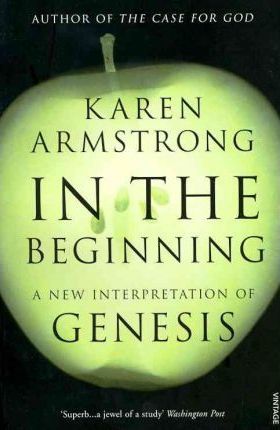Dear King Solomon,
I admire you. Honestly, I do. You authored books on life that have gone on to impact millions around the world several millennia after you passed on to the great beyond. You were the world’s first motivational writer and a true inspiration. Bless you.

Yet, just the other day I read something you wrote and I was left rather puzzled. Was this the same man who wrote endless proverbs that still amaze mankind until this very day? Or is this book just attributed to you by some hapless usurper? We will never know, but what I do know is that on this account something wasn’t quite right.
What account? You ask. Well, hold your horses because I intend to put my case forward as best as I know how.
With due respect Preacher, some of your advice in the book of Ecclesiastes only evokes doom, gloom and despair. Hardly what one would expect from a man so blessed by God with wealth, influence and wisdom. I understand that it was possible for you to have been disillusioned with the vagaries of life; its ups and downs, its inequalities and its uncertainties. [1]Ecclesiastes 5:8-19 And you were correct in observing that life is not fair. Unfortunately, it is not your capacity for precise observation that concerns me, but your response to this unfairness that has me in quite a quandary.
From Abraham, we learn to intercede for those facing impending destruction and from Jesus we learn the importance of helping one another, irrespective of race, colour or creed.
You see in your earlier book you made some telling statements on what ought to be done when one sees injustice or when one is faced with situations that require intervention. Simply put, your advice was that help should be provided where possible and all should be done to counter injustice or unfairness. [2]Proverbs 3:27; Proverbs 11:24-26; Proverbs 19:17; Proverbs 24:24-25; Proverbs 25:26; Proverbs 31:8-9 Your statements are corroborated all over the Bible, the book in which your words of wisdom are currently contained; with examples demonstrating that we are not to have a passive approach to life’s injustices, but we are to actively engage. From Abraham, we learn to intercede for those facing impending destruction [3]Genesis 18:16-33 and from Jesus’ parable on the Good Samaritan, we learn the importance of helping one another, irrespective of race, colour or creed. [4]Luke 10:25-37
There are also clear biblical instructions to feed the stranger, provide for the needy, widow and orphan and to fight for the oppressed. [5]Isaiah 58:5-7; Exodus 22:21-23 In Isaiah, the only true fast acceptable to God is recorded to be:
“to loose the bands of wickedness, to undo the heavy burdens, and to let the oppressed go free and that ye break every yoke? Is it not to deal thy (emphasis mine) bread to the hungry, and that thou bring the poor that are cast out to thy house? When thou seest the naked, that thou cover him; and that thou hide not thyself from thy own flesh?” [6]Isaiah 58:5-7
According to Jesus, [7]Matthew 25:31-46 only those who “provided for the hungry and thirsty, took in the stranger, clothed the naked, cared for the sick and visited the prisoner” would inherit the kingdom. James the Just on the other hand described the visiting the fatherless and widows as an equal component of pure religion. [8]James 1:27 According to him, it is not enough to see your brother or sister naked and without daily food and send them away with a mere prayer. That for James was dead faith and it amounted to sin if you knew to do good but failed to do so. [9]James 2:15-17; James 4:17 You also made a similar statement, advising not to withhold good from those in need especially when it is in ones power to help. [10]Proverbs 3:27 In other words, don’t let anything stop you from giving a helping hand!
Therefore, from a holistic reading of the Bible it is clear that though there is injustice and inequality in the world, we have what it takes to right these wrongs and correct these inequalities. We are meant to actively contribute to solving the problems of people and societies around us, and do our best to make the world a better place.
We are meant to actively contribute to solving the problems of people and societies around us, and do our best to make the world a better place.
Now let’s return to your latter musings in Ecclesiastes. This time your approach to life had completely changed. So had your advice.
“If thou seest the oppression of the poor, and violent perverting of judgment and justice in a province, marvel not at the matter: for he that is higher than the highest regardeth; and there be higher than they …it is good and comely for one to eat and to drink, and to enjoy the good of all his labour that he taketh under the sun all the days of his life, which God giveth him: for it is his portion. Every man also to whom God hath given riches and wealth, and hath given him power to eat thereof, and to take his portion, and to rejoice in his labour; this is the gift of God.” [11]Ecclesiastes 5:8, 18 & 19
According to you Sir, life is unfair. Tough. According to the new and improved you, our response should be to carry on with our lives because there is someone that is higher than us all that sees. Therefore, eat, drink and be merry for it is your lot; especially if you have been blessed with wealth & possessions. Do not worry for the injustices and inequalities around you for there is one in heaven watching and judging. If, unfortunately, you don’t live the good life and you are suffering injustice, poverty and oppression, the Preacher sends his sincere apologies. You too must look to the watcher in heaven who sees and knows and who hopefully has the solution to your problems.
This is the difference between the Teacher you were in Proverbs and Preacher you became in Ecclesiastes. For you left off teaching personal and social responsibility, and went on to advocate for narcissism and insularity.
What we do see, my dear Preacher, is that somewhere along the timeline of your life, you changed and your advice needed to be taken with a pinch of salt. Simply because, (a) life will never change and (b) neither will God. He still expects us to respond to the needs of those who are poor or oppressed around us. And if you or anyone else is in doubt about this, just look at the acts of Jesus and the acts of his Apostles. With Jesus, he fed the people when hungry and stood up for someone who would otherwise have been stoned to death. When he sent out his disciples, he charged them to change the lives and experiences of those they came in contact with. [12]Matthew 10:8 With the Apostles they too were recorded to have provided food for the poor and widows in their midst [13]Acts 6:1-7 and they took an offering for people who were in need. [14]Acts 11:27-30
If these examples are anything to go by, we are not meant to simply acknowledge evil and wrongdoing in the world and continue to live our lives in quiet contemplation and inner despair.
We are not meant to simply acknowledge evil and wrongdoing in the world and continue to live our lives in quiet contemplation and inner despair.
Like the Good Samaritan, when we see someone suffering, in pain or oppressed, we are meant to lend a helping hand. We are meant to apply our resources, physical, material or otherwise, in making the world a better, kinder and a more just place for everyone to live in. Especially for the have-nots, the sick, the poor and the oppressed.
We may not all be social crusaders or human rights activists, but we have an obligation to the watcher in heaven and to our fellow human beings here on earth – to actively work towards leaving this world, and the lives of those we come across within, better, happier and if possible easier.
That, o Preacher, is my problem with your latter musings. Perhaps, you could think about this. It may be impossible for you to change your mind about all this now, but maybe someone out there reading may take stock and change theirs.
References
| ↑1 | Ecclesiastes 5:8-19 |
|---|---|
| ↑2 | Proverbs 3:27; Proverbs 11:24-26; Proverbs 19:17; Proverbs 24:24-25; Proverbs 25:26; Proverbs 31:8-9 |
| ↑3 | Genesis 18:16-33 |
| ↑4 | Luke 10:25-37 |
| ↑5 | Isaiah 58:5-7; Exodus 22:21-23 |
| ↑6 | Isaiah 58:5-7 |
| ↑7 | Matthew 25:31-46 |
| ↑8 | James 1:27 |
| ↑9 | James 2:15-17; James 4:17 |
| ↑10 | Proverbs 3:27 |
| ↑11 | Ecclesiastes 5:8, 18 & 19 |
| ↑12 | Matthew 10:8 |
| ↑13 | Acts 6:1-7 |
| ↑14 | Acts 11:27-30 |


